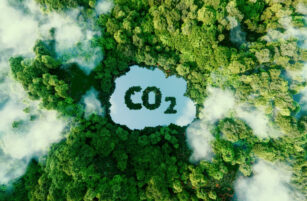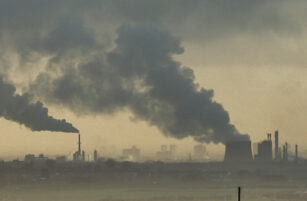Insight Focus
- Countries disagree on rules for project-based market
- Bilateral government-level trading rules also fail to pass
- COP political statement mentions fossil fuels for the first time
After two weeks of intense and sometimes heated negotiations in Dubai, delegates from nearly 200 countries failed to agree on rules to kickstart a global carbon credit market, known as Article 6.4 of the Paris Agreement.

Source: iStock
The 2015 Paris Agreement sets up two distinct market systems, known as Article 6.2 and Article 6.4. the former is a government-to-government system that enables countries to reach agreement on the transfer of emissions reductions according to bilaterally-agreed standards.
Article 6.4 is a centrally-regulated market where investments in clean-energy and low-carbon projects can generate carbon credits for sale to private sector buyers or to governments. An Article 6.4 Supervisory Body (SB) is charged with setting up the parameters of the market and eventually approving projects and issuance of credits.
Once purchased and retired by governments, these credits contribute to reducing their overall emissions and helping them meet their emissions reduction targets, known as Nationally Determined Contributions.
Country representatives were meeting to formally approve the work done this year by the Article 6.4 SB, namely a document that sets guidelines for which carbon reduction methodologies should be approved and a second that establish the principles for including carbon removals in the system.
Delegates could not agree whether to formally “adopt”, “provisionally adopt”, “welcome” or “acknowledge” and “further elaborate” the recommendations produced by the SB.
Some countries were in favour of adopting both documents, a move which would kickstart the approval of project methodologies by the SB in 2024, but another group of nations led by the European Union were unwilling to adopt the removals recommendations. Still others rejected both documents.
Despite talks stretching past the two-week deadline, countries could not reach an agreement and the COP presidency decided to refer the matter back to the Supervisory Body for more work in 2024.
The failure to approve the SB’s recommendations in Dubai effectively postpones the practical launch of the Article 6.4 mechanism by a year, while the SB now has no mandate for its work in 2024 beyond attempting to address the issues raised in Dubai. (Each year’s work needs to be approved by the plenary COP at the annual summit before it is regarded as binding.)
The talks on Article 6.2 were equally fraught, with the European Union seeking to refine some of the guidance to countries over how they should generate and trade emissions reductions with each other. However, many other nations pointed out that 6.2 is a bilateral system, and the parameters of the “cooperative approaches” pursued by parts of countries should not be subject to the UN’s interference.
The draft Article 6.2 decisions were rejected by parties including the EU, Mexico, Latin American countries, and the United States, most of whom are not expected to participate in the bilateral mechanism. Countries who are more likely to use the system, such as Japan, Switzerland and African nations, were generally favourable to the text.
Disagreements also emerged over how carbon credits should be stored and transferred under Article 6.2. The United States rejected a proposal to set up a central United Nations transactional registry, saying that this was a matter for individual countries and that the UN had no role in the operation of the bilateral mechanism.
Observers and experts were less concerned at the lack of agreement on the Article 6.2 proposals, with many pointing out that countries are already making deals to invest in carbon reductions and earn carbon credits from each other.
Indeed, a number of major deals were announced at COP, involving Rwanda, Kuwait, Norway, Singapore Chile, Papua New Guinea and Switzerland among others.
The high-level political debate on the Global Stocktake – the five-yearly assessment of countries’ progress towards their Paris goals – hinged on the subject of phasing out fossil fuels.
A group of more than 100 countries pushed for strong language in the final Stocktake text referring to a phase out but others, including OPEC members and some emerging economies resisted this. The final test referred only to “Transitioning away from fossil fuels in energy systems, in a just, orderly and equitable manner, accelerating action in this critical decade”.
Despite the relatively tame language, this is the first time a COP text has referred to fossil fuels directly. A previous text from Glasgow had only referred to coal.













